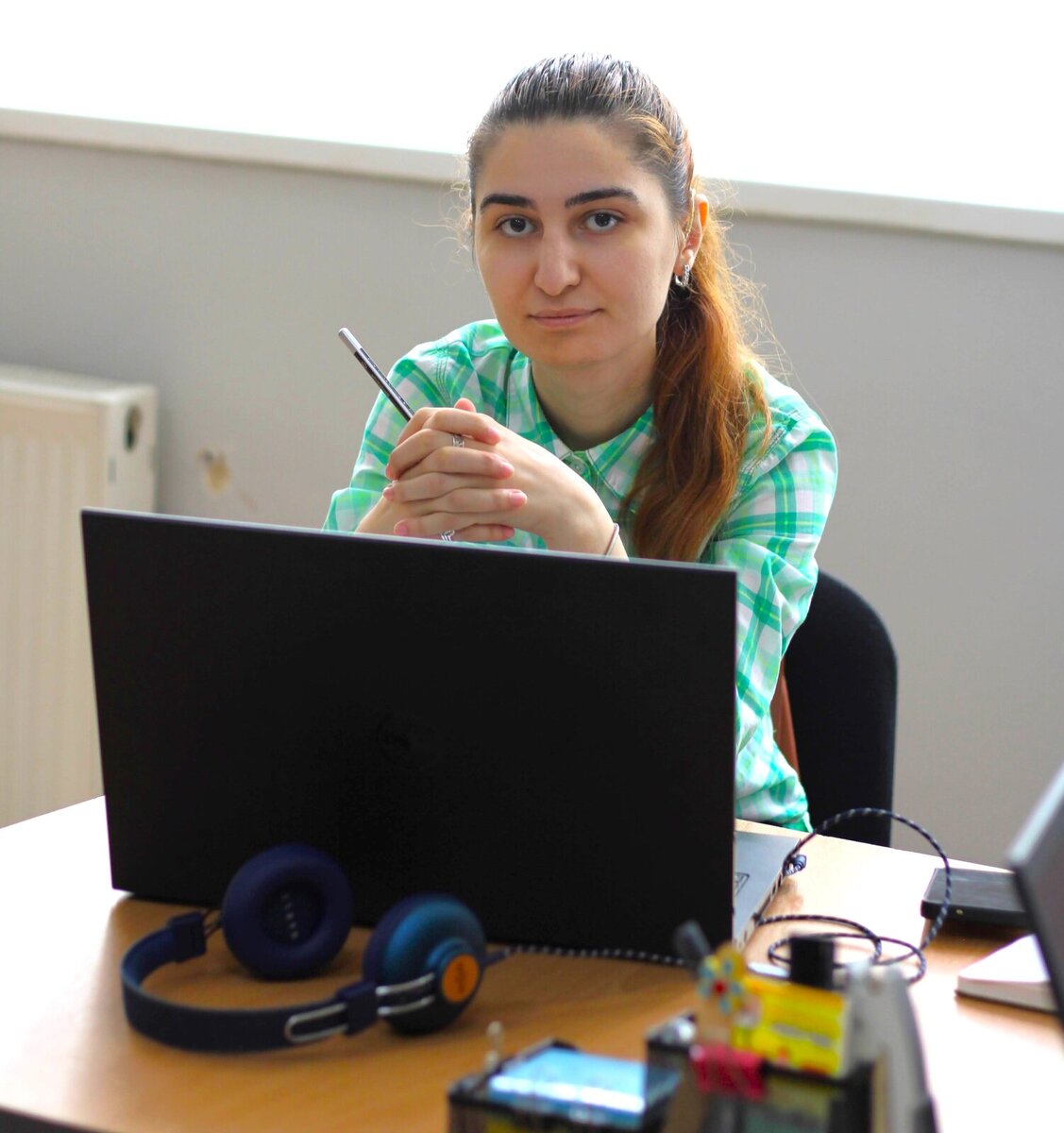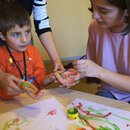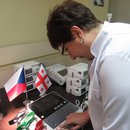In Georgia, the number of young people who are neither employed nor receiving education or participating in training or educational programmes is relatively high. Additionally, there are a lot of young persons with disabilities, internally displaced persons, and socially vulnerable youth who are unemployed and cannot be involved in educational processes. All this results in a large number of vulnerable youths who do not even know what steps they need to take to enter the job market.
Challenges faced by persons with disabilities in the job market
The job market in Georgia is full of challenges, but for persons with disabilities, one of the most challenging is access to information. Despite the abundance of information around them about opportunities to participate in various training and knowledge acquisition programmes, the material disseminated is rarely tailored to the needs of persons with different disabilities. Additionally, there is another social problem – often vulnerable young people do not even have a mobile phone, not to talk about tablet or computer, to access the information online. This problem is particularly acute in the regions.
With this in mind, recently, we sat to speak with Tamar Girgvliani, a consultant at the Independent Living Centre in Kutaisi, about the challenges in Georgia's job market. Tamar herself has a hearing impairment and says that in addition to the problems mentioned above, one of the most critical challenges is non-adapted digital platforms, from which persons with disabilities practically cannot get the information they need:
"I am referring to websites and other types of digital platforms. There are very few sites that take into account the needs of people with disabilities. Additionally, information is often provided only to those young people who regularly participate in various trainings and workshops. As a result, the same contingent constantly circulates, and these events do not have a broad reach."
According to Tamar, young persons with disabilities in Georgia feel that the state does not see them and, therefore, does not care about their needs. She believes that those young people who already have some training experience, have gained some knowledge, and have found employment should be supported by the state as motivational examples for other young people with disabilities:
"Mobile groups should be created to travel to the regions. Motivation and initial encouragement should be provided by schools. This should then continue in higher educational and vocational institutions. Unfortunately, this is not the case in Georgia."
Importance of Career Consulting
Tamar is just one of the many people with disabilities troubled by this issue. Many young people wish to find employment but see numerous obstacles and lack the skills to overcome them. These individuals are in constant search of support.
Since 2023, with the support of the European Union, Caritas Czech Republic has been working on an initiative to improve employment and entrepreneurship opportunities for vulnerable youth, including those with disabilities, in Georgia, Armenia, and Moldova, and supporting their active participation in democratic life. The organisation where Tamar works is actively involved in this project.
The project aims to strengthen existing employment support services through digital career counselling, including enhancing the qualifications of civil society organisations working on issues related to young persons with disabilities. This is important so that these organisations can increase the digital competencies of young people and involve vulnerable youth in democratic and socio-economic life. To ensure this, the project conducts awareness campaigns about the importance and risks of digitalisation, as well as about cyberbullying and misinformation.
Tamar says that when discussing career counselling for young people with disabilities, it is natural to consider all the limitations they may have. This is why digital professions are one good solution, as such opportunities require less physical effort, even in terms of adaptation:
"When we talk about digital professions, a young person with disability can adapt to a job with less need to leave home, especially if they have mobility issues. Choosing a digital profession also increases the need for socialisation, which is important for people with hearing impairments. Starting a job for a person with disability should not involve overcoming insurmountable obstacles, so digital professions are one good opportunity in this regard."
As part of the project, a guide to digital professions has already been created, aimed at helping career counsellors provide consultations on digital occupations. A manual was also developed based on the guide, where readers will receive information on the development of digital professions in the modern world. They will learn more about the career counselling process and the challenges faced by vulnerable youth in the context of digital professions and get information on ways to overcome barriers and assistive technologies. The manual provides readers with a classification of digital occupations and information on educational resources.
Tamar says that the guide developed within the project provides specific recommendations according to various limitations:
"We have a clear guide on retraining each young person with disability based on their digital competencies. This is a very significant step forward. Future practice will show what else can be improved to involve more young people in this process and, ultimately, to help more persons with disabilities find employment."
Based on the guide, training sessions were held, within which trained NGOs will participate in a grant competition. Successful winners will receive 2000 euros to provide digital career counselling for vulnerable youth.
The EU-funded project "Enhancing Digital and Career Management Competencies for Vulnerable Youth in Georgia, Armenia, and Moldova" is implemented by Caritas Czech Republic in Georgia. The project partners are the Moldovan organisation Millennium and the Armenian organisation Agate.
This article was created with the assistance of the European Union. Its contents are the sole responsibility of Caritas Czech Republic and to do not necessarily reflect the views of the European Union.










